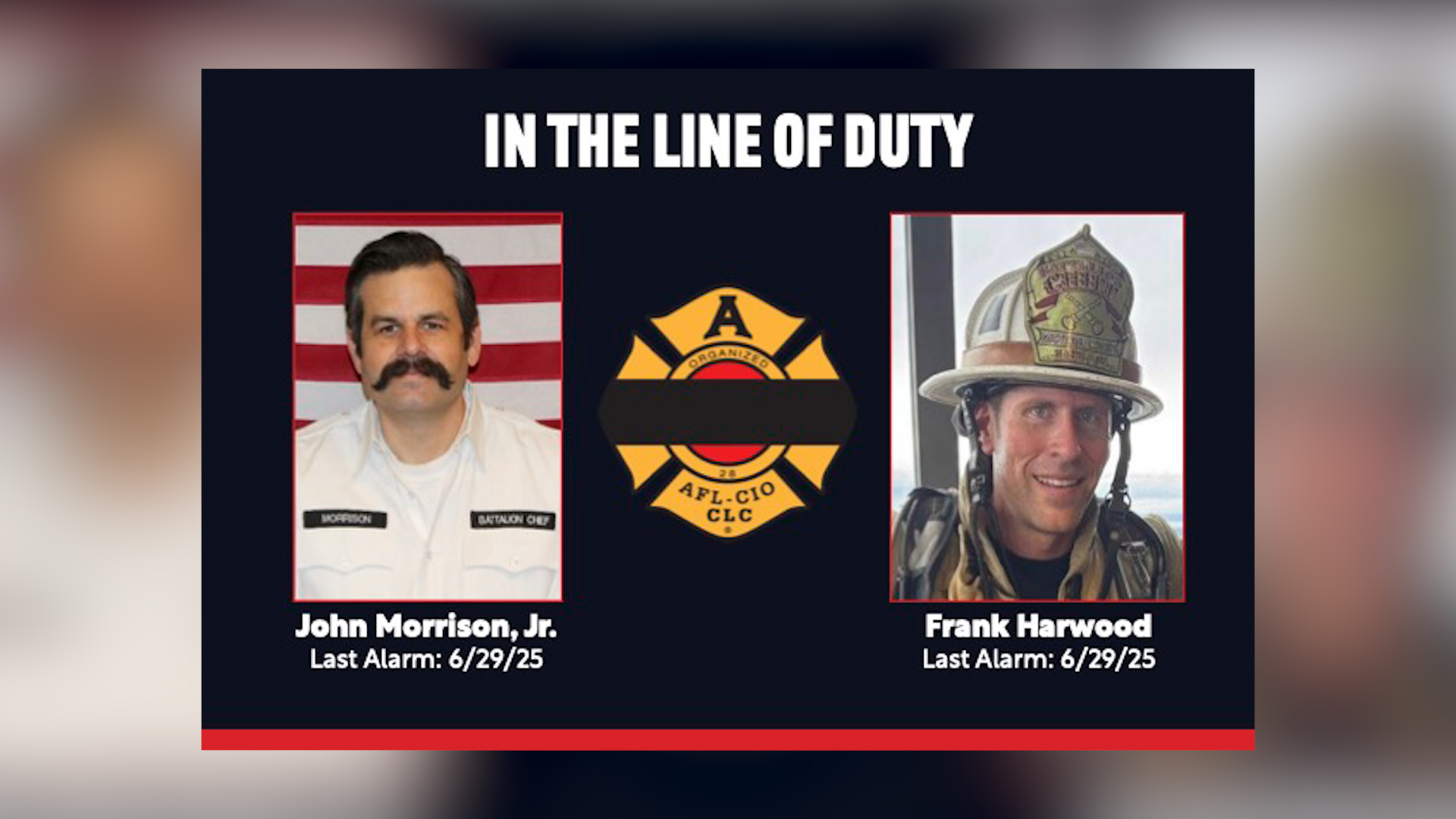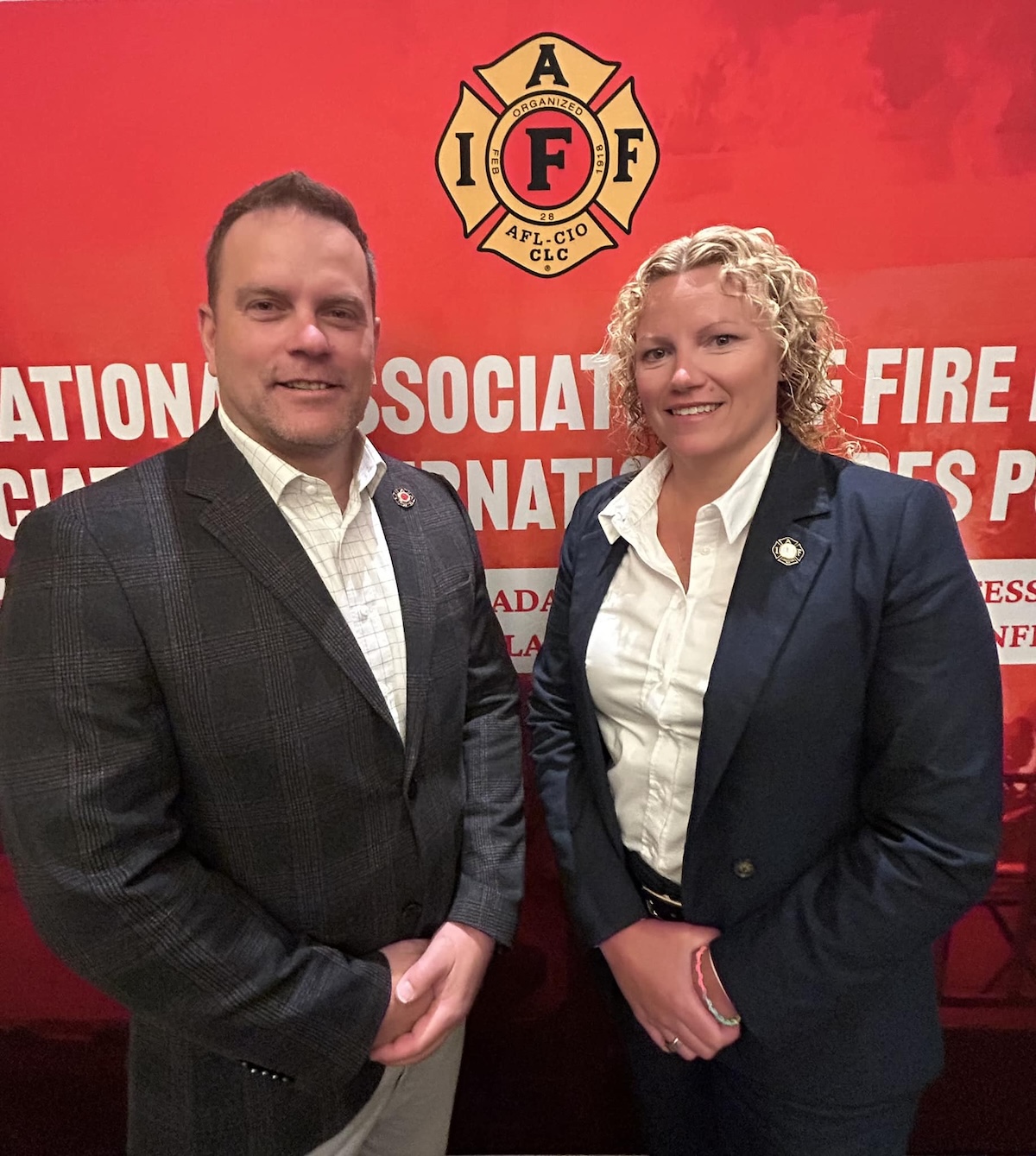When Gina Burke started her career as a fire fighter in St. John’s, Newfoundland and Labrador, in 1992, decontamination was something done after hazmat calls, but not fires.
“When I first joined the SJRFD, it was a time when fire fighters wore their soiled turnout gear as a badge of honour, displaying all of the calls you had attended,” she wrote in 2023. “To clean your gear meant you brought it home and washed it in your own washing machine. You can only imagine the exposures.”
In 2014, when Burke was 44 and had been in the fire service for 22 years, a routine self-exam revealed a lump on the upper outer side of her right breast. It was two months before a mammogram could be arranged, which led to an ultrasound, followed by a biopsy that confirmed invasive ductal carcinoma, Grade 2, with lobular features.
A month later, a double mastectomy was performed, followed by six rounds of chemotherapy and 24 rounds of radiation, a tough experience that she described as “dying in order to live.”
Burke was able to take a year off to recover from her cancer battle, using “great benefits we have in Local 1075,” with approval from management. But she gives major credit to her mother for her support, and to her husband Barry, also a St. John’s fire fighter, who looked after their two children and worked overtime shifts that she was able to use as time off in lieu.
She returned to work in September 2015, when she also began a seven-year run on Tamoxifen, a drug used to treat all stages of hormone receptor-positive breast cancer in women and men. In October 2022, finally free from her cancer and its treatments, she experienced the “bittersweet” experience of “breaking up with her oncologist,” who she now counts as a friend.
Today, she feels good and considers herself cancer-free.
While breast cancer is among the 19 cancers currently included in Newfoundland and Labrador’s presumptive legislation, the province didn’t come forward with presumptions until 2016, two years after Burke’s diagnosis. With the assistance of St. John’s Local 1075 Executive Board member Jim O’Toole and 15th District Vice President David Burry, a claim was submitted with Workplace NL, which was initially denied but then accepted on appeal. Specific details about compensation are still being determined.
Burke sees how beneficial the presumptive coverage is for those diagnosed with occupational cancers going forward. “At least now you don’t need to feel that you’re begging for help and begging for support. It’s there, and it’s acknowledged that you are risking your life,” she says, adding that Local 1075 has done a great job of putting a focus on fire fighter health and safety and presumptive legislation.
Burke also generously shares her experience with others when the opportunity arises, to help underscore the importance of prevention and early detection. “Yes, I would talk to any woman any time, not just in the firehall; with my daughter and her friends or through group sports. I’m a private person, but if I can help someone avoid going through even a tenth of the procedure, that is so important. It’s the little things that take care of the big things.”
Yes, I would talk to any woman any time, not just in the firehall; with my daughter and her friends or through group sports. I’m a private person, but if I can help someone avoid going through even a tenth of the procedure, that is so important. It’s the little things that take care of the big things.
Gina Burke
She welcomes the new awareness about the importance of practices such as minimizing contact with dirty gear, which can spread toxins when washed at home or at a laundromat. “I look back on it now, and I say, wow, what were we doing? But when I joined, we had six stations and there was only one with a washer. Things have changed, people are more aware of everything in the firehall, like exhaust fumes and PFAS in turnout gear.”
Another welcome advance she sees is more awareness about proper SCBA use. “Years ago, when I came on the job, you probably didn’t wear SCBA during overhaul, it was more like you were wild and free. Now everyone’s aware what can happen to you. It’s more diligent, more safety oriented, and more educated.”
Despite her experience with occupational cancer, Burke keeps things in perspective and remains positive. “I never laid blame. I was more angry with the timeframe of it all, the year it took me to get better,” she says. “I knew I was in for a hard road that way, but I didn’t know how it would change my life. But I’m not resentful. I love my job. I never once disliked my job.”



